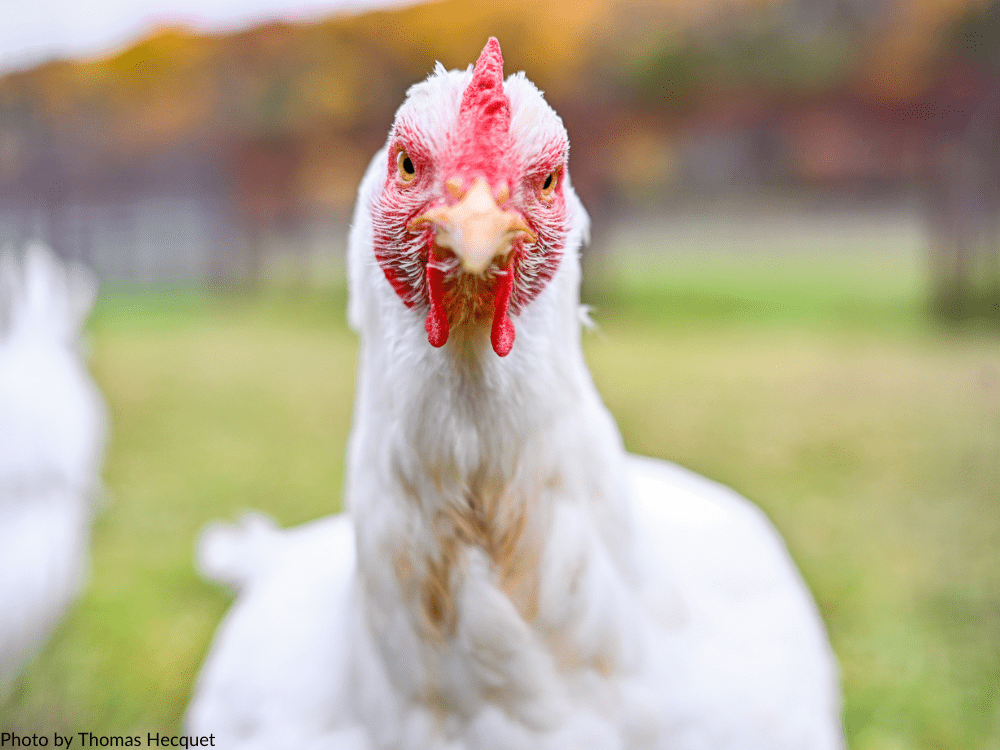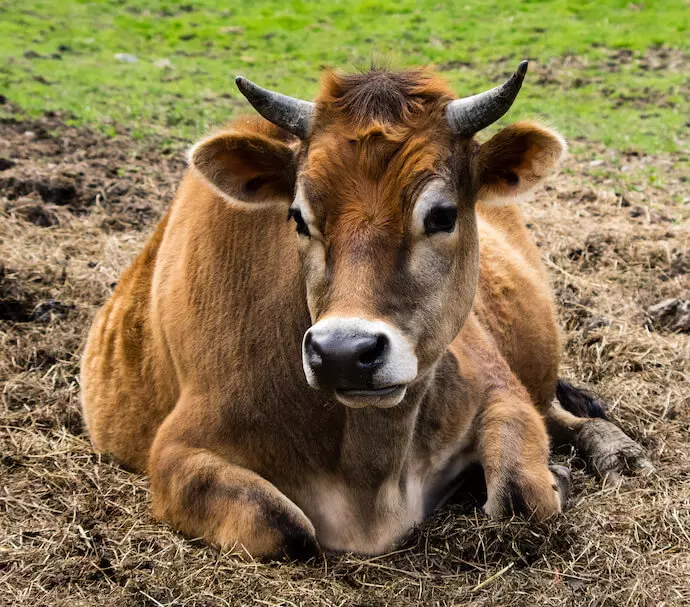
From Henry to Millions: The Loss of Individuality in the Bird Flu Crisis
Recently, The New York Times published an opinion piece by David Quammen titled, “Why Dead Birds Are Falling From the Sky”, which highlighted the importance of addressing the current widespread outbreak and the dangers posed by avian influenza or bird flu (highly pathogenic avian influenza, or HPAI). Mr. Quammen focused on the devastating impact of bird flu on wild birds, but as we read the article, we couldn’t help but feel like something—and someone—was missing. Mr. Quammen’s article aptly laments the loss of so many birds species that are revered by the public, from bald eagles, to California condors, to loons, but the forgotten, unmentioned victims are the chickens, turkeys, and ducks in our food system who contracted the virus and were culled by the millions—so many that we’re running out of places to bury them. As we write this from the grounds at Catskill Animal Sanctuary, we’re treated to a chorus of our many aging rescued roosters crowing in the distance. Sebastian, tiny but mighty, calls to let his hens Sidra and Pilar know that he’s found the foodbowl that Animal Caregiver Dani set out for him, Robin Hood answers him, setting off a back-and-forth from pen to pen to pen. This, friends, is what sanctuary is—small peaceful moments wrapped around the simplicity of letting animals be exactly who they are. Chickens possess intelligence that rivals that of dogs, cats, and even some primates. They recognize individual faces and voices, remember past events, and have been observed helping one another and mourning the loss of their flock mates. All of these are remarkable in their own right, but it doesn’t speak to who these animals truly are. At Catskill Animal Sanctuary, we’ve known chickens who fell asleep in our laps, who shared our vegan lunches with us, and who came running when they heard their name. We’ve known chickens who were protectors, who were friends, who loved their flock (and us humans) with a force that would rival the kindest companion animal you’ve ever met. And yet, despite these social and cognitive abilities, chickens are subjected to a life of confinement, overcrowding, and horror on industrial farms. This inhumane treatment often leads to stress and disease, making them particularly susceptible to viruses such as avian influenza. We have a tendency to want to numb ourselves from the feeling of loss when we talk about individuals killed in such high numbers, but the majority of us also can’t comprehend the loss of the individual when that individual is a chicken. We’re reminded of the day we said goodbye to Henry, one of our dear Cornish Cross rooster friends who passed in “old” age. As we tearfully wrapped him for burial, a little boy asked us what we were doing. After we explained, we overheard him whisper to his father, “Dad, it’s just a chicken.” When you have the pleasure of knowing these animals as we do, it’s never just any particular animal, and to us, Henry was so much more than just a chicken. We feel the loss of each one of those birds deeply, because we know the truth that ten chickens are as individual as ten humans, and the loss of so many beings to this disease is truly incomprehensible. We must not overlook the devastating impact that avian influenza and factory farming practices have on both wild AND domesticated animals. By recognizing the intelligence and empathy of chickens, and by leaving them and the eggs they lay off of our plates, we can help prevent the emergence of virulent influenzas and protect the health and well-being of all animals.
animal rescue, animal sanctuary, avian influenza, bird flu, Catskill Animal Sanctuary, chicken, chickens, farm animal rescue, farm animals, farmed animals, friends not food, global federation of animal sanctuaries, hpai, rescue animal, sanctuary animal rescue, vegan





